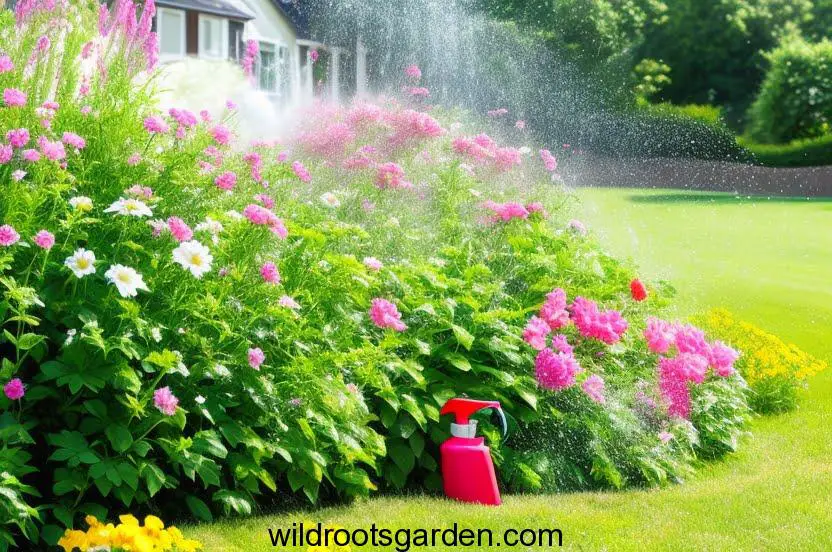Can I Spray Roundup in My Garden: Many gardeners rely on herbicides like Roundup to help control unwelcome plants when it comes to maintaining a lovely and weed-free landscape. Yet in recent years, worries about Roundup’s safety have surfaced, prompting gardeners to wonder whether it’s safe to apply Roundup in their yards. In this post, we’ll go into the subject and offer tips for using Roundup safely in your garden.
Table of Contents
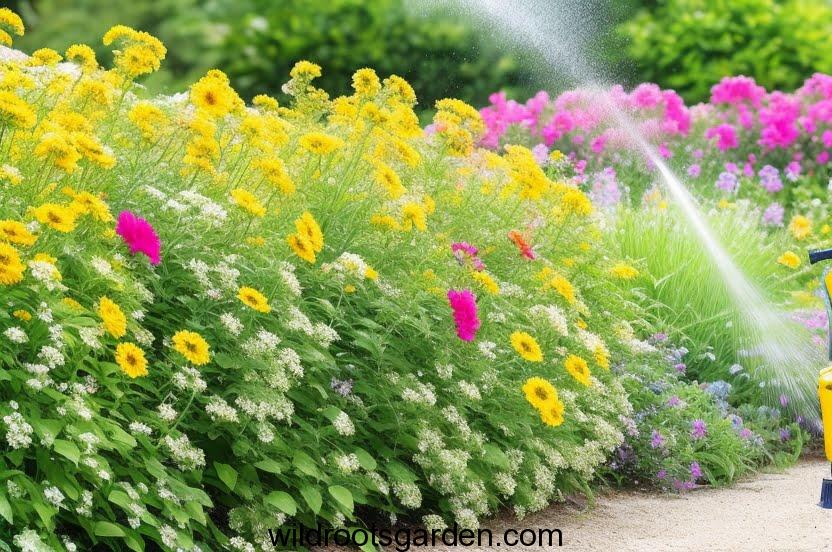
Understanding Roundup
The popular herbicide Roundup has glyphosate as its active component. It is an efficient tool for weed management in gardens and other outdoor spaces because it is made to destroy a variety of weeds and grasses. Roundup kills the targeted vegetation by preventing an enzyme that is necessary for plant growth.
The Safety of Roundup in Gardens
Roundup is typically safe for most plants when used as instructed. To prevent harming desirable plants, it’s crucial to use caution when spraying the herbicide. It is advised to use targeted spraying or spot treatment to apply Roundup directly to the weeds or plants you want to remove to reduce the possibility of inadvertent damage.
Is Roundup Safe for Humans?
There has been discussion regarding Roundup’s suitability for human use. The International Organization for Research on Cancer has rated the active component glyphosate as “possibly carcinogenic to humans” (IARC). Nonetheless, when used as directed on the label, regulatory organizations like the Environmental Protection Agency (EPA) in the United States have determined that Roundup is safe to use.
It is crucial to take the suggested precautions to maintain your safety while using Roundup. To reduce exposure to the herbicide, put on protective equipment, such as long sleeves, pants, gloves, and goggles. To avoid drift and inadvertent contact with you or other persons, avoid spraying Roundup in windy circumstances.
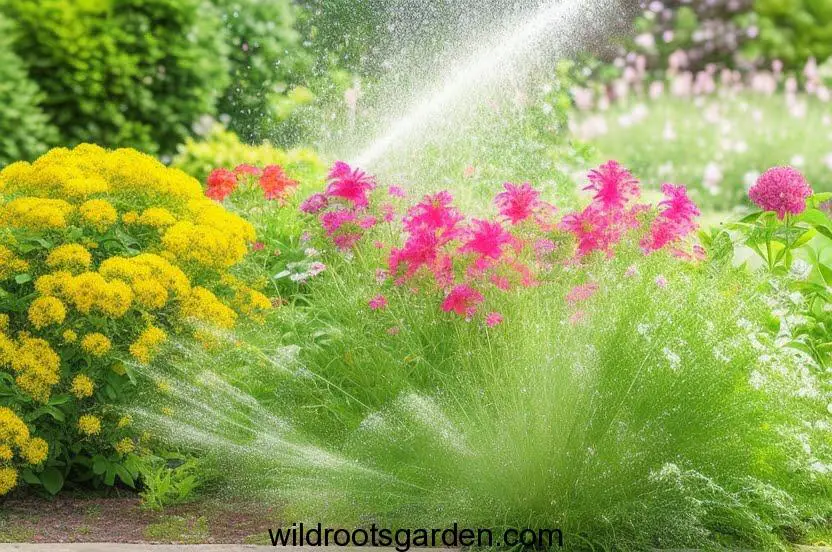
Environmental Impact of Roundup
Another issue with Roundup is its influence on the environment. Aquatic life may be at risk if glyphosate gets into the soil and contaminates water sources. To reduce the herbicide’s negative effects on the environment, runoff must be avoided and it must only be used occasionally. If there are any sensitive ecosystems or local water bodies, you might want to use alternative weed management techniques.
Alternatives to Roundup
There are other weed-control options you can look into if you are hesitant to use Roundup in your garden. These alternatives frequently protect the environment better and are less harmful to people’s health.
Organic Weed Control Methods
Using organic weed management techniques is one choice. This covers techniques like manual weeding, mulching, and the use of organic weed barriers like cardboard or landscape fabric. These techniques might take more time and work, but they offer a chemical-free way to manage weeds.
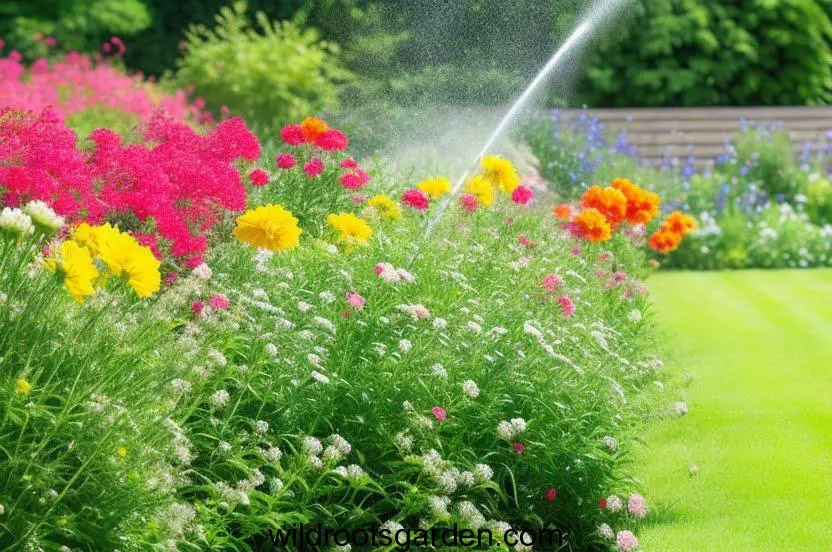
Natural Herbicides
Another alternative to Roundup is a natural herbicide. To suppress weeds, these products use compounds derived from natural sources, such as vinegar or essential oils. They can be efficient for controlling mild to moderate weed infestations, even if they might not be as effective as synthetic herbicides.
Tips for Using Roundup Safely in the Garden
If you decide to use Roundup in your garden, here are some essential tips to ensure its safe and effective application:
Read and Follow the Label Instructions: The label instructions provide important information on the proper usage of Roundup. Carefully read and follow the recommended application rates, timing, and safety precautions.
Wear Protective Clothing and Gear: To protect yourself from potential exposure, wear long sleeves, long pants, gloves, closed-toe shoes, and safety goggles. Consider using a respirator if working in an enclosed space or applying Roundup for an extended period.
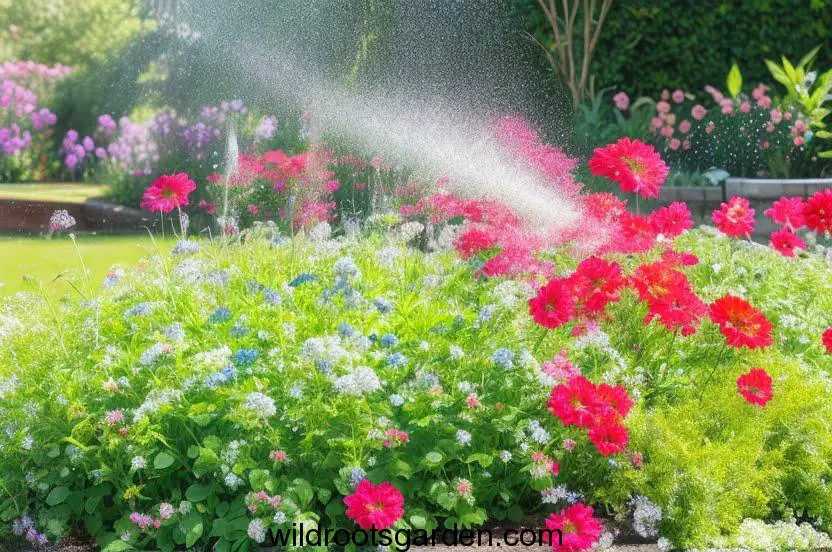
Avoid Spraying on Windy Days: Wind can carry herbicide droplets, leading to unintended drift and contact with desirable plants or people. Choose a calm day with minimal wind for the Roundup application.
Use Targeted Application: Directly apply Roundup to the weeds or vegetation you want to eliminate. Avoid spraying indiscriminately, as this increases the risk of unintended damage.
In conclusion, provided the right safeguards are taken, Roundup can be used in gardens safely and successfully. While selecting whether to use Roundup or look into alternate weed control techniques, it’s critical to take into account the potential effects on plants, people, and the environment. You may effectively manage weeds in your garden without endangering the health of your plants or yourself by being aware of the safety precautions and taking them.
FAQs
Is Roundup safe for all types of plants?
When applied as instructed, the roundup is generally safe for the majority of plants. To prevent harming desirable plants, it must be applied carefully.
Can Roundup cause health problems in humans?
Despite being labeled as “possibly carcinogenic to humans,” glyphosate, the key ingredient in Roundup, is nevertheless regarded as safe when applied as directed on the label. It is essential to take the advised safety precautions.
Are there any natural alternatives to Roundup?
Sure, there are organic weed management techniques (such as hand weeding and mulching) and natural herbicides that can replace Roundup (using essential oils or vinegar).
How can I minimize Roundup’s environmental impact?
Avoid runoff by not spraying near water sources, use Roundup sparingly, and take into account alternate weed management strategies in delicate ecosystems to reduce the herbicide’s negative environmental effects.
Can Roundup be used in vegetable gardens?
In vegetable gardens, Roundup should be used with caution. Make sure to aim the spray away from the edible parts of the plants and just toward the weeds. If you are worried about the usage of herbicides, think considering using organic weed control techniques in your vegetable gardens.

